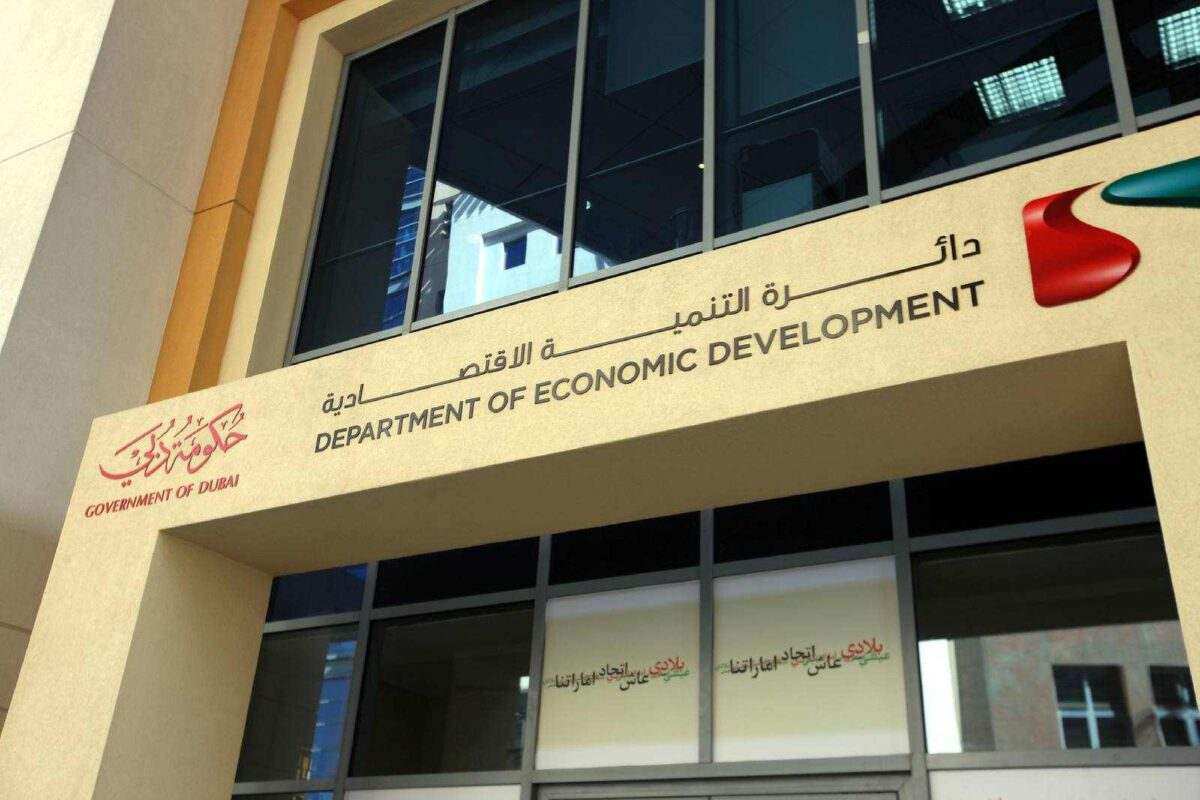One of the reasons why Dubai is a preferred destination for businesspeople is that the city offers a variety of business trade licenses for a wide range of companies. Investors and entrepreneurs can obtain their licenses from the Department of Economic Development, also known as the DED license, by applying to the department of economic development. To be able to apply for this license, however, you must be aware of the activities that are covered by the license before you apply.
The purpose of this article is to provide you with a comprehensive overview of the DED trader license and how you can apply for it. We will also explain a few other details about this license, including its scope of coverage and its costs, in order to give you a better understanding of what it covers. As a result, let us take a closer look at:
What is the DED Activities List in the UAE?

The Department of Economic Development (DED) is a government entity in Dubai that regulates the emirate’s economic agenda. Besides, it also aims to speed up Dubai’s economic growth by applying strategies and implementing suitable policies. Furthermore, this entity issues three different types of business licenses, which are the following:
Commercial License
With a commercial license, you can carry out the following activities in Dubai (Note : you can also check ded activity list pdf on google)
- Communications and broadcasting.
- Video and audio recordings.
- Passenger transportation and car rental.
- Brokerage business.
- Trading and distribution of different products.
- Theaters and cinemas.
- Facility administration.
- Rental services.
- Postal service.
- Buying and selling livestock.
- Investment.
- Insurance.
- Rental of office spaces and electronic equipment.
- Perfumery.
- Services for packing.
- Property investment.
- Motor vehicle and motorcycle trading.
- Cleaning and surveillance services.
- Supermarket and stores.
Industrial License
With an industrial DED license, you will be able to perform the following DED license activities list:
- Manufacturing.
- Machines and appliances.
- Food processing.
- Woodworking and wood products.
- Steel fabrication.
- Generation/Transmission of electricity.
- Fabrication of textiles and products.
- Production of petroleum products.
- Motorcycles and replacement parts.
- Chemical manufacturing.
- Gold and precious stone cutting.
- Garment and rug.
- Ship construction.
- Waste collection and disposal.
- Plastics manufacturing.
- Glass repair and lens cutting.
- Eyeglasses production.
- Leather products manufacturing.
- Lastly, paper products manufacturing.
Professional License
Among the activities that a professional DED license allows, you can find the following:
- Accounting and finance consultancy.
- Agriculture and soil consultancy.
- Animal welfare society.
- Forum of businesspeople.
- Also, the business advisory council.
- Management consultancy.
- Business advisory council.
- Facilities management organization.
- Marketing and information.
- Hospitals and rehab facilities.
- Insurance consultancy.
- Beauty salons.
- Legal assistance.
- Translation and typing.
- Representative offices.
- Finally, social clubs and activities for social work.
What are the advantages of obtaining a DED trade license in Dubai?
There are numerous business advantages in the UAE, which is why so many business owners choose to establish branches or organizations in this country. So, here are a few of the primary advantages of obtaining a Dubai trade license.
Increase domestic and international trade
Firstly, a general trading license opens up a world of possibilities for manufacturing and importing goods. Note that you can either send your products to the local Dubai market or export them and profit from other countries.
Increase your credibility
Secondly, your credibility will improve. Without a doubt, firms that take the time to follow the rules gain the trust of their customers. In addition, the license increases the company’s exposure. This will be in the markets in which it operates. Hence, this helps it gain credibility and the trust of its customers.
Profit from tax breaks
Thirdly, you will get tax breaks. Note that tax breaks were one of the main reasons why over 90,000 people relocated to Dubai in 2021. Dubai is almost entirely tax-free, hence, traders and business owners can generate additional revenue. For this reason, money that would have otherwise been spent on taxes can now be put toward production costs.
Few trade restrictions
Fourthly, Dubai has very few trade restrictions, making it an ideal place to do business. So, you will not have to worry about restrictions as long as your products are registered under a UAE General Trading License.
Setup is simple
Obtaining a DED Dubai trade license is much faster than obtaining other UAE business licenses. Therefore, you should be able to get your license as long as you have the proper documentation. Furthermore, the processing time for trade licenses is extremely short. Usually, you can open a business in any Dubai Free Zone or on the Mainland in a matter of weeks.
How can you obtain a DED license?
Thus, if you need to obtain a DED trader license in Dubai, you must follow these steps for the application process:
- First, choose a Free Zone or Mainland in Dubai to set up your business.
- Then, select a company structure depending on the activities you desire to carry out.
- Subsequently, gather and submit all required documents to apply for your DED license.
- Lastly, pay the necessary license fees and get approval from the pertinent authorities.
Once you have completed all these steps, you will receive your license. As a result, you can start operating your business in Dubai.
How much does the DED license cost?
If you are applying for a DED license, you will have to find out the exact cost of the license before you proceed. As a matter of fact, the cost of obtaining this document can vary from as little as AED 15,000 to as much as AED 50,000. There are, however, some things to keep in mind when it comes to the costs associated with different business activities.
It is also important to mention that you will also have to pay some fees in order to obtain a license. The cost of a trade license certification, for instance, ranges from 620 AED to 2,000 AED, depending on whether you require it. As a result, it will mostly depend on the characteristics of your trade name in order to determine the outcome. Furthermore, there are other costs that you should take into account, including office space rent and attestation fees for legal documents.
How Do I Renew my DED Business license?
Then, you may be wondering about the DED Dubai trade license renewal. Firstly, log on to the DED website and select the ‘Renew license’ option from the e-Services portal to renew your trade license in Dubai.
Secondly, enter your license number here and then click the renew button. You will then be given the option of paying the applicable fees. Lastly, your trade license will be renewed once the payment is successfully processed.
How long will it take to obtain a Trade License?
After you have submitted your trade license application, you will have to wait. Generally, the wait time for a Dubai trade license is relatively short. Hence, obtaining a trade license can take anywhere from three to four weeks. In addition, the exact turnaround time will be determined by the approvals needed and the business activities you engage in.
Note that as long as you have all of the necessary documentation, your turnaround time should be relatively quick. Also, check your application materials twice before submitting them to ensure that your trade license is issued as soon as possible.
Obtain the business license you need with Connect FZ
Getting your DED license is one of the steps that you must complete during the business setup process. Nevertheless, if you have Connect FZ as your partner, applying for a suitable business becomes easier and straightforward. Besides, our specialists can also help you complete the process of the Freezone Business Setup in UAE. Thus, feel free to contact us as soon as possible.

Sanjyam Dhingra
![]() Sanjyam DhingraShe is an esteemed Compliance Officer with extensive experience in ensuring corporate adherence to regulatory standards. Her expertise spans a wide range of compliance functions, including regulatory analysis, risk management, and the implementation of compliance programs. She excels in identifying potential compliance issues and developing strategic solutions to mitigate risks.
Sanjyam DhingraShe is an esteemed Compliance Officer with extensive experience in ensuring corporate adherence to regulatory standards. Her expertise spans a wide range of compliance functions, including regulatory analysis, risk management, and the implementation of compliance programs. She excels in identifying potential compliance issues and developing strategic solutions to mitigate risks.

